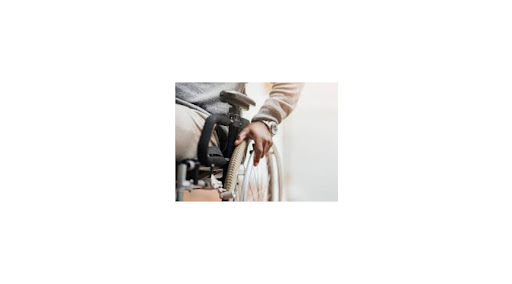My letter today has been prompted by an investigation into Covid-19 provision for the disabled at risk persons in New Zealand.
I did read recently that the Catholic church in Honiara was assisting wheel chair bound persons to get to and from vaccination centres to get a vaccination, but I have no knowledge how disabled persons outside Honiara are coping in the present circumstances with high Covid transmissions into the provinces. I hope someone might tell me.
In the meantime I share with readers the Radio New Zealand report that has prompted my piece.
Quote.
At-risk communities and M?ori were failed by the rollout of the Covid-19 vaccine in this country, a study has concluded, and claims the disabled are being let down in the outbreak are being investigated by an urgent inquiry.
Questions about lack of Covid-19 provision for the disabled
The Disability Rights Commissioner is so concerned about the situation for disabled people during the Omicron outbreak she's launched an urgent enquiry.
Commissioner Paula Tesoriero said she's worried about essential in-home services for disabled people being carried out reliably, help for people isolating and support for testing, and lack of targeted accessible information for disabled people.
Speaking to Nine to Noon today, Tesoriero said she'd heard multiple stories of people being let down by the current response.
Services and families providing in-home care were "already under sustained pressure" before the outbreak, but now were left scrambling to cope with gaps because of gaps left by illness and isolation requirements.
About 25 percent of New Zealand's population will experience disability in their lifetime.
Disabled people were finding it difficult to access Covid-19 information online and find services. And assistance was not easy to come by for those who could not do things like administering their own rapid antigen tests and bringing delivered groceries in from the doorstep.
Tesorioro said she raised the need for a specific disability plan before the introduction of the Government's Covid-19 Protection Framework traffic light system, which started on 3 December.
"At the time... it was indicated that special measures for at-risk communities such as disabled people would be put in place. And I am not aware of such a plan.
"I hope that my inquiry will find out what level of planning has been undertaken, but certainly from what I've been involved in I have not been reassured there's been sufficient planning."
As well as the Ministry of Health there were a number of other government agencies that need to be involved in disability planning and provision, she said.
New measures that could be needed include a one-stop contact centre to access community-level information tailored to the disabled community, revision of the Covid-19 website to make information more accessible, and systemic monitoring of gaps and "what's happening out there".
The inquiry was launched yesterday, using powers under the Human Rights Act, and Tesoriero said it would provide rapid recommendations.
She earlier told RNZ there was a disturbing and growing attitude that catching Omicron was inevitable and not risky, which ignored the fact catching it could put the lives of disabled people at risk.
A study published in the New Zealand Medical Journal has considered the geographical spread of Covid-19 vaccination services, and found much lower accessibility in some areas and for some groups.
The researchers argued at-risk populations and groups with known health inequities should have been prioritised in the rollout.
But instead they found neighbourhoods with a higher proportion of M?ori, Pasifika and older people and large parts of rural Aotearoa had "statistically significant" worse access to vaccination services.
Lead researcher, Waikato University health geographer Jesse Whitehead, told Morning Report the high rates of vaccination in the national population should be
"There were some definite gaps in the rollout. There were more geographical barriers for those older populations so they had to work harder to be able to access a clinic, and for those M?ori and Pasifika populations that had younger age structures there was an additional barrier for them ... it probably contributed to lower uptake in those populations.
"This highlights that our health system's structured that even when new services are added, there's no guarantee they'll be equitable."
He said well designed outreach services were a must for the vaccine rollout to achieve good coverage through all of New Zealand.
"Individual DHBs are all going to have different strategies and may not have the resources to do the spatial planning. That's why we suggest a M?ori Health Authority has the potential going forward to design and deliver effective and equitable health services."
Whitehead said it was vital the issues be proactively addressed as the Covid-19 vaccination programme continued to work on increasing booster shots and vaccinations in the 5 to 11-year-old group.
End of quote.
Yours sincerely
Frank Short



